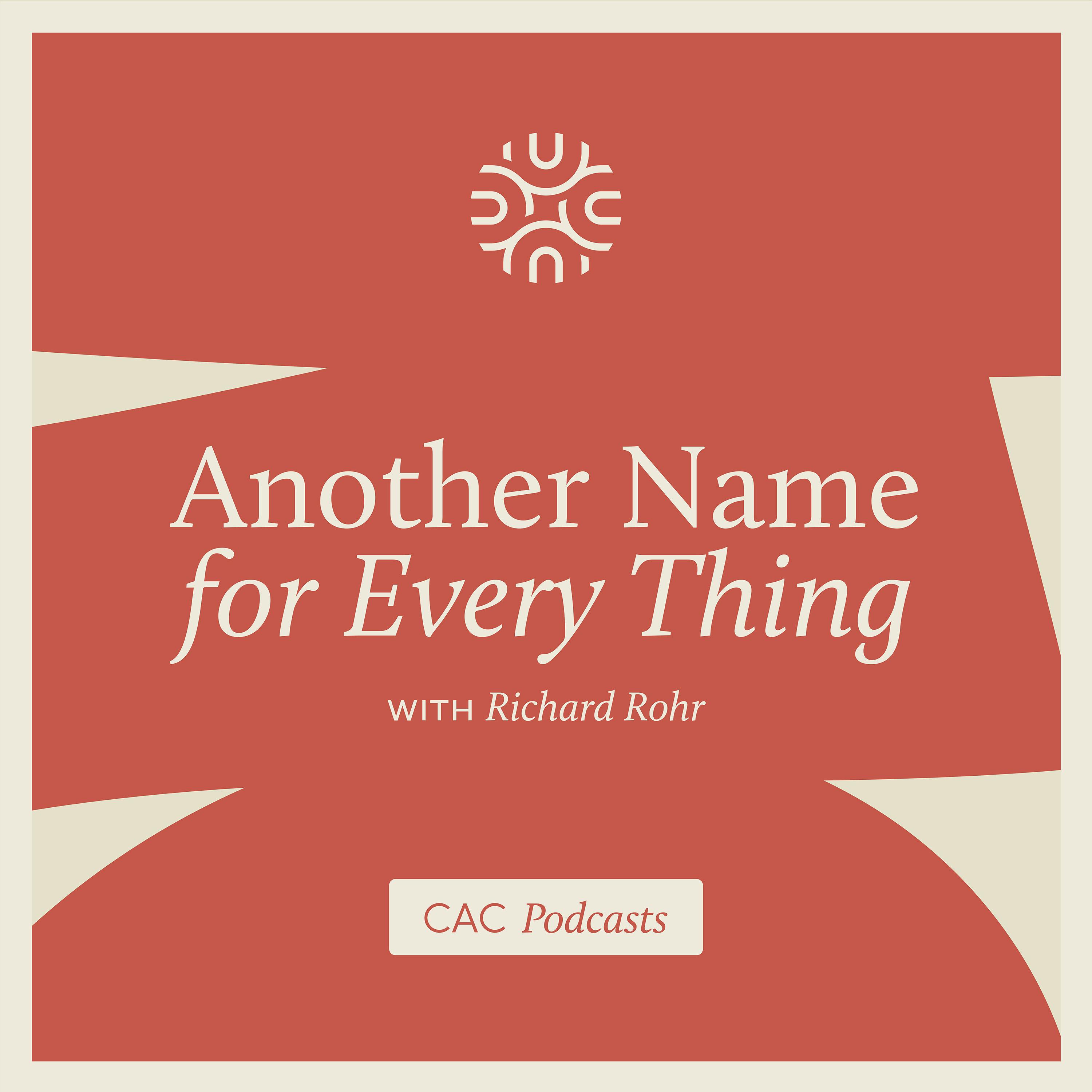
SOLACE: Soul + Grief
This podcast is sponsored by SOULPLUSGRACE serving the San José/Santa Cruz area, offering grief support and grief journeying with spirituality. I hope to help you travel through grief with God at your side.
"I am a trained Spiritual Director for those who seek to complete the 19th Annotation of St. Igantius’ spiritual exercises OR seek spiritual direction while grieving. I have also worked as a hospital/cemetery chaplain and grief doula. I believe all paths lead to God and that all traditions are due respect and honour. I take my sacred inspiration from all of my patients and companions–past, present and future; the Dalai Lama, James Tissot, St. John of the Cross, the Buddha, Saint Teresa of Ávila, and, of course, Íñigo who became known as St. Ignatius. I utilize art, poetry, music, aromatherapy, yoga, lectio divina, prayer and meditation in my self-work and work with others. I believe in creating a sacred space for listening; even in the most incongruous of surroundings."
BACKGROUND
- Jesuit Retreat Center, Los Altos, CA -- Pierre Favre Program, 3 year training to give the Spiritual Exercises of Saint Ignatius
- Centro de Espiritualidad de Loyola, Spain -- The Spiritual Exercises of St Ignatius of Loyola -- 30 Day Silent Retreat
- Center for Loss & Life Transition – Comprehensive Bereavement Skills Training (30 hrs) Ft. Collins, CO
- California State University Institute for Palliative Care--Palliative Care Chaplaincy Specialty Cert. (90 hrs)
- Sequoia Hospital, Redwood City, CA -- Clinical Pastoral Education
- 19th Annotation with Fumiaki Tosu, San Jose, CA, Spiritual Exercises of St. Ignatius
- Santa Clara University, Santa Clara, CA M.A. – Pastoral Ministries
CONTACT ME: candeelucas@soulplusgrace.com with questions to be answered in future episodes.
SOLACE: Soul + Grief
Light, Power, and Love
Keeping vigil, reflecting on the gap between a rich life and a plain death, and wondering how faith, science, and ritual help us hold loss without letting it define us. The dead may be invisible, but we explore how their presence can still affect us.
• why stories of death need telling and retelling
• readings on the nearness of the dead and what comfort means
• the vigil: hospice, timelines, and private moments of farewell
• different grief responses within a family
• finding a language for dying after hospice work
• humor and ritual as meaning‑making
• how faith and non‑faith coexist in grief care
• integrating memory as an ongoing practice
If you have questions about spiritual direction while grieving, or grief support or grief groups in your community, my contact information is in the show notes.
SPIRITUAL DIRECTION WHILE GRIEVING IS AVAILABLE
Art: https://www.etsy.com/shop/vasonaArts?ref=seller-platform-mcnav
and https://fineartamerica.com/profiles/candee-lucas
https://www.amazon.com/dp/B0F2SFH4Z6
Music and sound effects today by: via Pixabay
Welcome to Solace: Soul+ Grief. I'm glad you decided to join me today. My name is Candee Lucas. I'm a grief chaplain and spiritual director. I was trained by the Jesuits at Santa Clara University and at the Jesuit Retreat Center in Los Altos, California.
Candee:When we started this ministry, we'd hope to reach out to those who are grieving, both those with fresh grief and those who've been on the grief path for a while. Understanding these groups and those in between have very different needs. We hope to create a catalog of information and helpful messages, meditations, and prayers. So feel free to look at the catalog or revisit the catalog from time to time, as you may be in a different grief place, and there may be information that I recorded two or three years ago that could be quite useful right now. Thanks for being with us.
Candee:Karl Rahner was also a very spiritual man, bordering on mystic, I would say. And he left us a lot of great writings. One of the things he said about death is the great mistake of many people is to imagine that those whom death has taken leave us. They do not leave us. We do not see them, but they see us. Their eyes, radiant with glory, are fixed upon our eyes. O infinite consolation, though invisible to us, our dead are not absent. They are living near us, transfigured into light and power and love. He goes on further to say, I have often reflected upon the surest comfort for those who mourn. It is this a firm faith in the real and continual presence of our loved ones. It is the clear and penetrating conviction that death has not destroyed them nor carried them away. They are not even absent. On the contrary, they have, in depth and fervor of devotion, grown larger a hundredfold. Death is, for the good, a translation into light, into power, into love. Those who on earth were ordinary Christians become perfect. Those who were good become sublime.
Candee:I looked for these writings on the anniversary of my father's death. He died October eighth last year. I grieve his loss deeply. I know others are not moved by this event. But the important part of the loss is the man, the father, the husband. Someone may be family or friends or acquaintances, or school teachers, professors or mentors. But each person feels that loss differently. Everyone in a different way and to a different degree. We may even mourn the passing of those we do not know more deeply than those we know well. The distance created by this unknowing gives us a false sense of being safe from a similar occurrence. But of course, none of us are.
Candee:I called my sisterSh said okay and hung up the phone. It was nearly 5:30 in the morning, and no one was moving or up and around in the locked facility where he had been living the last few months. So I just sat there near him in a chair and wished his soul onward. The phone rang a few minutes later, and it was my sister asking how I was, kind of apologizing for her offhand remarks in the earlier phone call. I had woken her from a sound sleep. I said I was fine, and she agreed to call the hospice nurse who would have to come there and pronounce him dead. And then she told me that she and my stepmother would be there by 7 a.m. For the next hour or so, I just sat there with him, thought about his life and his death. I felt that the quality of his death did not come anywhere near to the quality of his life, as it had been so rich and full. He had traveled around the world. He had achieved some notoriety in his chosen field of beta genetics. He and my mother had had a long and mostly happy marriage. He had three daughters, five grandchildren, and sixteen great-grandchildren. By most measures, he had had a good and successful life. He had written books, illustrated anatomy manuals for nurses, had a warm spot in his heart for pigeons and ne'er duels. When we were growing up, he was a Sea Scout master, which meant we had a 13-foot sailboat at our disposal in the summers. He taught us kids about animals and plants because he did teach biology 101 to the freshmen at Drake University. He had a general, excellent memory for all floor and fauna, and pointed these things out to us as we grew. In summertimes, we would all lie together on a big blanket in the front yard, and he would point out the constellations to us. In those days, our only companions were lightning bugs that filled the trees near our home. He'd spent the end of World War II in the first part of the Korean conflict as a Marine. And in the end, when we all went to plan his funeral with him, he opted for a military funeral and a casket that was meant for the members of the Marine Corps. And he wanted to wear his uniform to be buried in it. Luckily, by the time he died, the uniform fit him well, like the day he'd last worn it in his twenties. My mother died in 1996 after a long illness. I had gone home from my family here in California. My two sons safely set off in life to help my father look after her in the last year and a half before she died. We got very close at that time. The fact that the cancer treatment, the many cancer treatments that she had undergone, seemed to be as cruel as they were restorative. He knew, being a biologist, what the meaning of her medical charts were, how to read the x-rays, understanding in a different kind of way than me what the shape of her end would be like. We resolved to keep her company. I took her back and forth to doctor's appointments while he continued with his regular classes at the university. The irony of all this was the fact that he retired from his job at the university at the end of the school year in 1996, and my mother would only have a few more months to live. He was never quite able to share his feelings about losing her. Although he did tell me that in the night she would relate to him how afraid she was of death and dying. He was not a religious man, and became quite confused when I became a convert to Catholicism in 2014. We two tried to talk about it several times, and the closest I could get to an explanation was that after I'd spent some time in hospice, I felt I had no longer a language to describe the dying event and the other events I was witnessing. So I had gone back to school and earned a master's degree at Santa Clara University in pastoral ministries, which did give me not only the tools to help me accompany those who are dying and suffering, but the tools to also understand this spiritual wonder that was awakening in me. He sort of understood it, but I think at the end of the day the daughter he had known and grown was simply not the same to him any longer. Yes, we shared the love of science fiction, both books and movies. We shared love of animals as well, and curiosity about plants and animals that we encountered in our lives. Once while I was in Spain, an injured bird appeared on our balcony one night, and I thought it had run into the glass window, for it was circling around in the stones beneath as if it was confused. I went outside and picked up the bird and tried to calm him in my hands, and then put him back on a branch in a bush nearby. After a while he flew away. I shared this story because the very next day I tried to identify this bird in a book I'd gotten about birds of Spain, and though I wasn't and though I couldn't quite identify the bird I'd seen on the balcony, there were a couple of close ones, and so I emailed my dad and told him about the bird incident and described the bird, its size, its color, the size of its wings, the shape of its wings, the color of its beak, and it wasn't long before I got an email back identifying what the bird might be or probably was. Though I'm sure it was a bird he probably had never seen in life. That's the relationship that we had. That's the one I missed most, being able to call him up and ask him a question about the coloring in my cat's eyes. He would surely know the answer why the darkness around her eyes is fading. Those are some of the things I thought about as I waited for my sister and my stepmom. When they arrived, they asked me if I had notified anyone in the facility yet about his death, and I said no. I did not see what purpose that would serve. Hospice had been called. Everybody that needed to know did know, and I wanted us to have some privacy until it was time to take his body away. The hospice nurse came eventually and pronounced him dead at 7: 30, even though I knew he had died at 5: 15, and then the folks came from the funeral home to take his body away. I sat by his bedside until they came. His body grew cold, and I kept tucking the blanket around him and rubbing his arms through the blanket, as if I could will some warmth back into him. And when they finally came and put him on a gurney, and were ready to zip up that horrible bag, I asked them to wait a second so I could kiss him on the forehead and say goodbye. They covered his face with a white sheet. They put an American flag over the body as they took it out, and we proceeded to begin to clean out the few belongings that he had. We took down some decorations we had put on the walls, some paintings, some pictures of pigeons, his beloved Mona Lisa. My sister had brought some spiky gold shoes that she couldn't wear because they were so tall. And so we decided to leave those at the bottom of his closet. I think he would have liked the joke. And then we closed the door. Thank you for indulging me in telling this story. One of the things we learn in grief support is that many people need to tell the story over and over again until they incorporate it. So thanks for being my audience today.
Candee:That concludes another episode. A new one drops every Friday morning. You can find us on Amazon Spotify or Apple Music. If you need more information about grief support or spiritual direction while grieving, my contact information is in the show notes. Travel with God near you.
Podcasts we love
Check out these other fine podcasts recommended by us, not an algorithm.
IKAR Podcasts
IKAR
All There Is with Anderson Cooper
CNN Podcasts
The Examen with Fr. James Martin, SJ
America Media
Jesuitical
America Media
What's Your Grief Podcast
Eleanor Haley & Litsa Williams
The Spiritual Life with Fr. James Martin, S.J.
America Media
Sensible: Down-to-Earth Spiritual Exercises
Ignatian Center for Jesuit Education
Inside The Vatican
America Media
Another Name For Every Thing with Richard Rohr
Center for Action and Contemplation